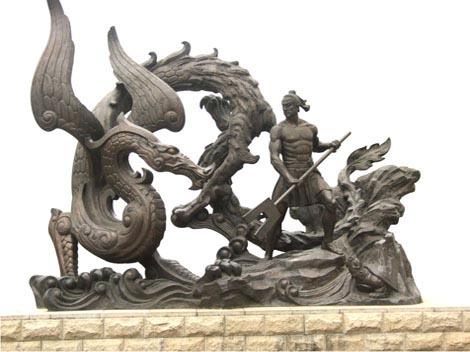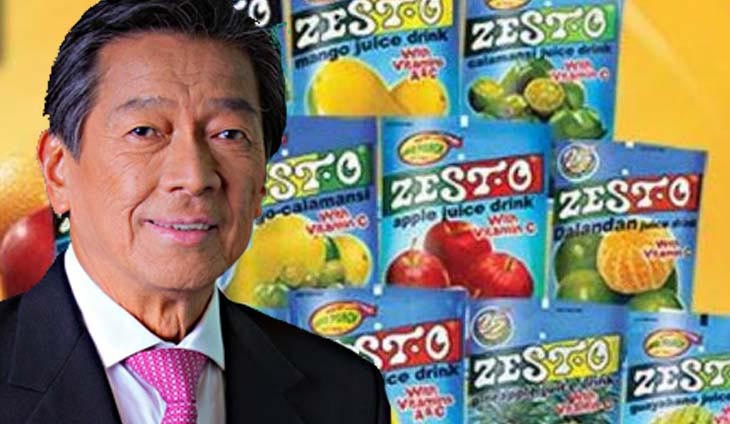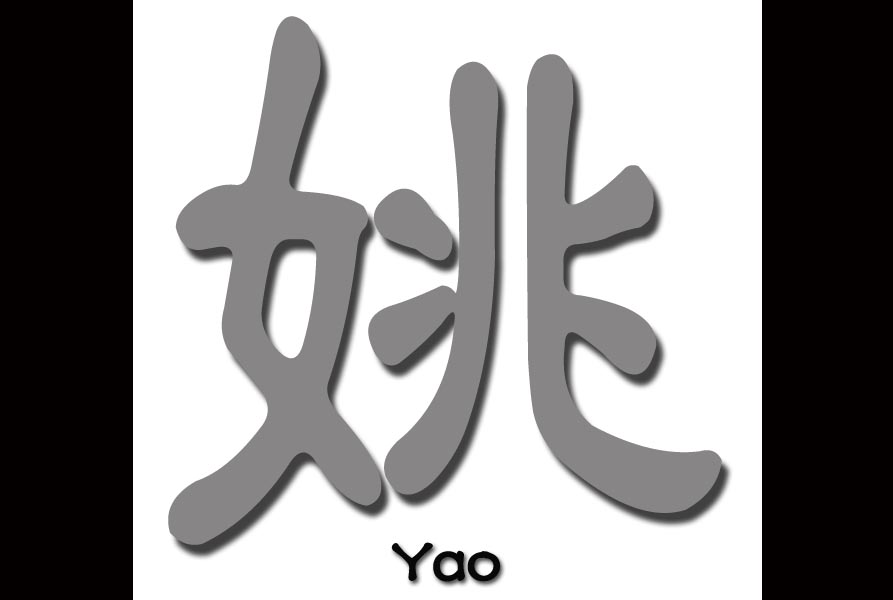First published in Tulay Fortnightly, Chinese-Filipino Digest 24, No. 18 (February 21-March 5, 2012): 5.
The surname Yao (姚) has same pronunciation in Mandarin and Hokkien. It is the 62nd most populous surname in China, and ranks 25th among Chinese in the Philippines.
The history of the surname Yao has to do with well-known and respected legendary emperor, Shun (舜). He was born in Yao Xu (姚墟), which means “Yao market.” Consequently, his heirs used the name of his birthplace as their surname.

Yao is as ancient as they come: Emperor Shun lived before China’s first dynasty in China. In fact, it was Shun who handed over his crown to the first emperor of Xia Dynasty Yu (禹) in recognition of Yu’s great contribution in solving the flood problem along the Yellow River banks back then.
With a history of at least 4,000 years, Yao is definitely one of the oldest surnames in China.
Among prominent Tsinoys with surname Yao in the Philippines, there is Jose Campos whose Chinese name is Yao Cho Liat (姚祖烈). He owns United Laboratories, Inc., the largest drug manufacturing company in the Philippines.
Another rising star in business recently is Ambassador Alfredo Yao, owner of Zest-O Corp., Philippine Business Bank, dealer/manufacturer of Royal Crown Cola in the country. He is elected recently as chairman of the board of Philippine Chamber of Commerce and Industries, the first Tsinoy to hold the prestigious position. However, the ambassador’s true Chinese name is Chua Ki Lin (蔡其仁).

Another Tsinoy, Yao Ka Hi (姚嘉熙), passed away recently. He was one of the major donors and supporters of Kaisa. He goes by his English name Alfonso So.
These three examples of Tsinoys who use the surname Yao in Chinese but a different one in English show how complicated it is to do a proper count among the Philippine Chinese of people bearing specific surnames.
Many Chinese in the Philippines have different Chinese and English surnames because of two circumstances: one is they adopted the Filipino surname of their godfather when they were baptized. The other is what we call “paper names” which occurred during the American colonial period when the Chinese Exclusion Act was applied to the Philippines.
In order to gain entry to the Philippines, a lot of Chinese bought certificates to become children of other Chinese who have resident rights in the Philippines. They adopted their paper father’s surname, which is different from the Chinese surname or a different Filipino surname if their paper father had Filipino surname.
Many young Chinese who have a different Chinese surname from English surname do not understand why it is so. They are too young to know this history during the American period. They just know they inherited their father’s adopted surname and used it as their legal name.
Finally, another prominent figure in Tsinoy community surnamed Yao in Chinese and English is Yao Eng Hue (姚榮輝). He had been the president of the Federation of Filipino-Chinese Chambers of Commerce and Industry, Inc. (1991-1993) and founded the Chamber of Commerce and Industry of Valenzuela, Inc. in 1974.
(Alfredo Yao photo credit: https://www.bilyonaryo.com/2019/10/17/alfredo-yaos-zest-o-on-expansion-mode-set-to-buy-foreign-beverage-firm/)
